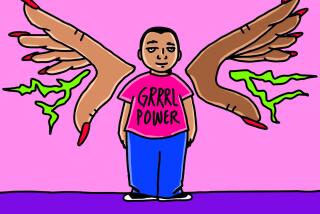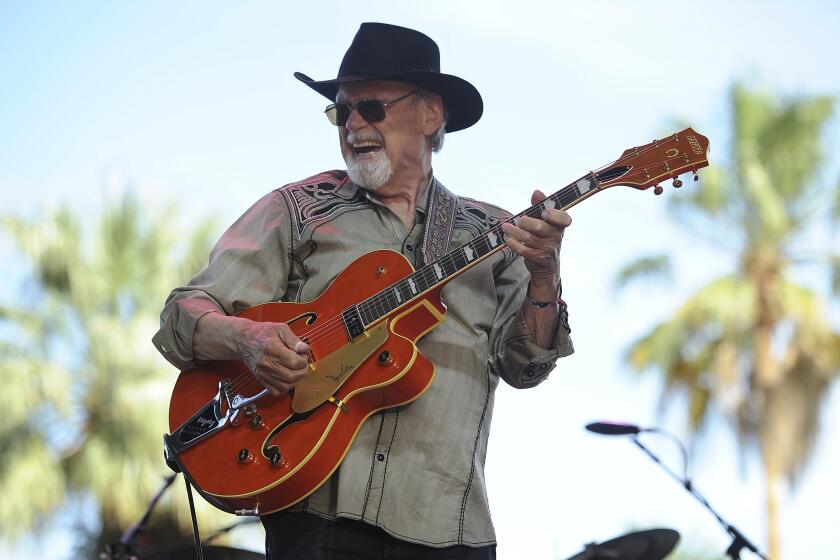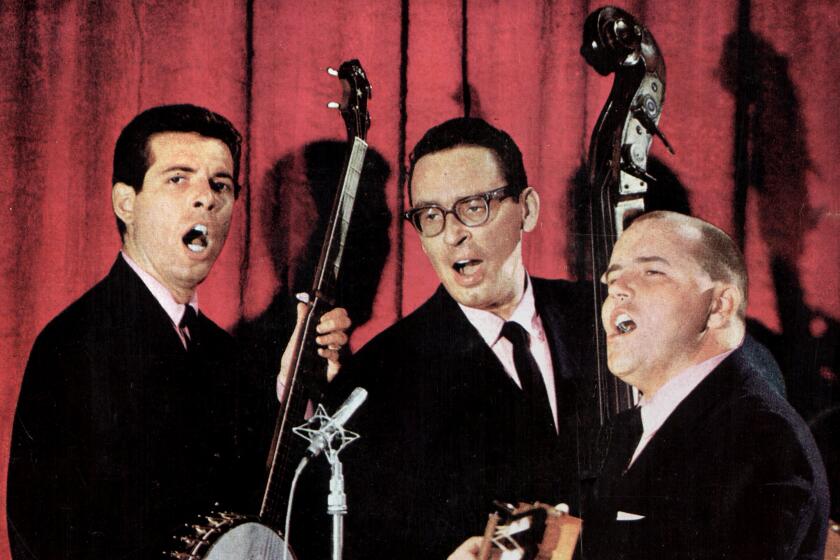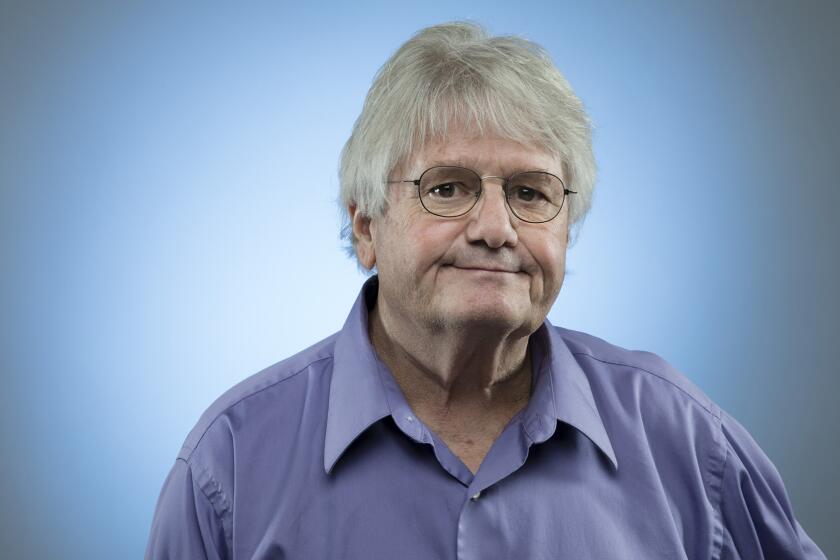Jeanne Córdova dies at 67; activist and author chronicled lesbian feminist movement of 1970s
Jeanne Córdova, an activist, author and publisher whose magazine, the Lesbian Tide, chronicled the lesbian feminist movement of the 1970s, has died. She was 67.
Córdova died of cancer Sunday at her home in Los Feliz, her spouse, Lynn Harris Ballen, said.
A provocative, self-described “butch” who favored neckties and a close-cropped haircut, Córdova spent more than four decades fighting for lesbian visibility in both the feminist movement and the male-dominated gay-rights movement.
“This is lesbian guerrilla warfare,” Córdova told a crowd of women gathered in West Hollywood in 1995. “We’re no longer going to be invisible to straight America, and we’re no longer going to be invisible to gay men. “
She was born on July 18, 1948, in Bremerhaven, Germany, the second of 12 children of Frederick and Joan McGuinnes Córdova. Her Mexican American father worked with the humanitarian organization CARE, and her mother was a businesswoman who ran self-storage facilities.
Córdova grew up Catholic in Southern California, and her leadership skills emerged early. As an older child in a “household of Latino hierarchy, she had 10 underlings to command, form alliances and strategize effectively on everything from who would eat her vegetables to what TV show would win for that night,” said her younger sister, Lu Córdova, of Boulder, Colo.
Córdova joined the Immaculate Heart of Mary order of nuns in 1966. She soon began questioning her sexuality and faith. She left the convent and earned a master’s degree in social work from UCLA. She recounted her convent experience in her 1990 book, “Kicking the Habit: A Lesbian Nun Story.”
Córdova’s devout Catholic parents struggled with their daughter’s coming out, and there was a “dark age” when she was estranged from the family for several years, Lu Córdova said. She later reconciled with her parents, who persisted, unsuccessfully, in trying to win her back to the faith, Córdova wrote.
For her siblings, she was fascinating, Lu Córdova said. They questioned what it meant — coming out, being gay.
“We were so sheltered from the world and had no idea what a kaleidoscope of diversity lay outside our door,” Lu Córdova said. “Jeanne opened that door.”
Córdova gained prominence as an activist in 1970, when she became president of the Los Angeles Chapter of the Daughters of Bilitis, a lesbian civil and political-rights organization.
It was a time when gay activists were becoming bolder. Within the Daughters, there was a split between younger women who wanted to force change and older members uncomfortable with Córdova’s feminist leanings, “afraid that if they appeared too subversive they would be more vulnerable to their enemies,” according to the book “Gay L.A.: A History of Sexual Outlaws, Power Politics and Lipstick Lesbians.”
Córdova’s Daughters of Bilitis newsletter evolved into the independent Lesbian Tide newsmagazine in 1971. It became a nationally distributed publication and rallied crowds to political gatherings, including the National Lesbian Conference at UCLA in 1973.
In addition to the Lesbian Tide, Córdova wrote and edited for the Los Angeles Free Press. A collection of her columns was printed in her 1974 book, “Sexism — It’s a Nasty Affair.”
In 1981, Córdova founded the Community Yellow Pages, a directory of gay- and lesbian-owned Southern California businesses, providing options for consumers looking for companies that catered to them without judgment.
“I am much more comfortable with a gay plumber than I am with a straight one,” Córdova told The Times in 1989. “I don’t have to run around the house and hide any telltale signs that I’m a lesbian.”
Ivy Bottini, a longtime friend and fellow activist who advertised her real estate business in the Community Yellow Pages, said the directory helped bring local gays and lesbians out of the shadows, publishing their real names in an era when many were afraid to be publicly identified.
“Jeanne created a vehicle for us to come out and be safe,” Bottini said. “There was power in that book, letting the outer world know that there were more than five of us, that there were doctors and lawyers and accountants.”
Córdova and her spouse, Ballen, committed to each other in an August 1995 partnering ceremony before family and friends. The couple were legally wed in 2013, after same-sex marriage became legal in California.
“She was, to me, brilliant and beautifully complicated and tough, while being soft at the same time,” Ballen said in an interview this week. “She was a true-to-herself butch ... and she truly did have an ability to be visionary.”
Córdova sold the Community Yellow Pages in 1999. She and Ballen moved to Mexico, where Córdova explored her Latina heritage and began writing her 2011 memoir, “When We Were Outlaws.” The couple returned to Los Angeles in 2007.
In an open letter published on her website in September, Córdova said that she learned she had colon cancer in 2008 and that it had spread to her lungs and brain. She called her life’s activism a “wild joyride.”
She left $2 million of her estate to the Astraea Lesbian Foundation for Justice, a New York-based international philanthropic organization, according to the Los Angeles LGBT Center.
In addition to her spouse, Córdova is survived by 11 siblings and dozens of nieces and nephews.
Twitter: @haileybranson
More to Read
Start your day right
Sign up for Essential California for the L.A. Times biggest news, features and recommendations in your inbox six days a week.
You may occasionally receive promotional content from the Los Angeles Times.







